May 1818: Blackwood’s Edinburgh Magazine: Leigh Hunt Damned & Keats as Infatuated Bardling: Z
47 Paternoster Row, London
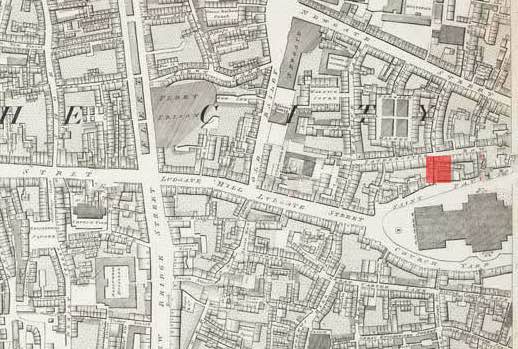
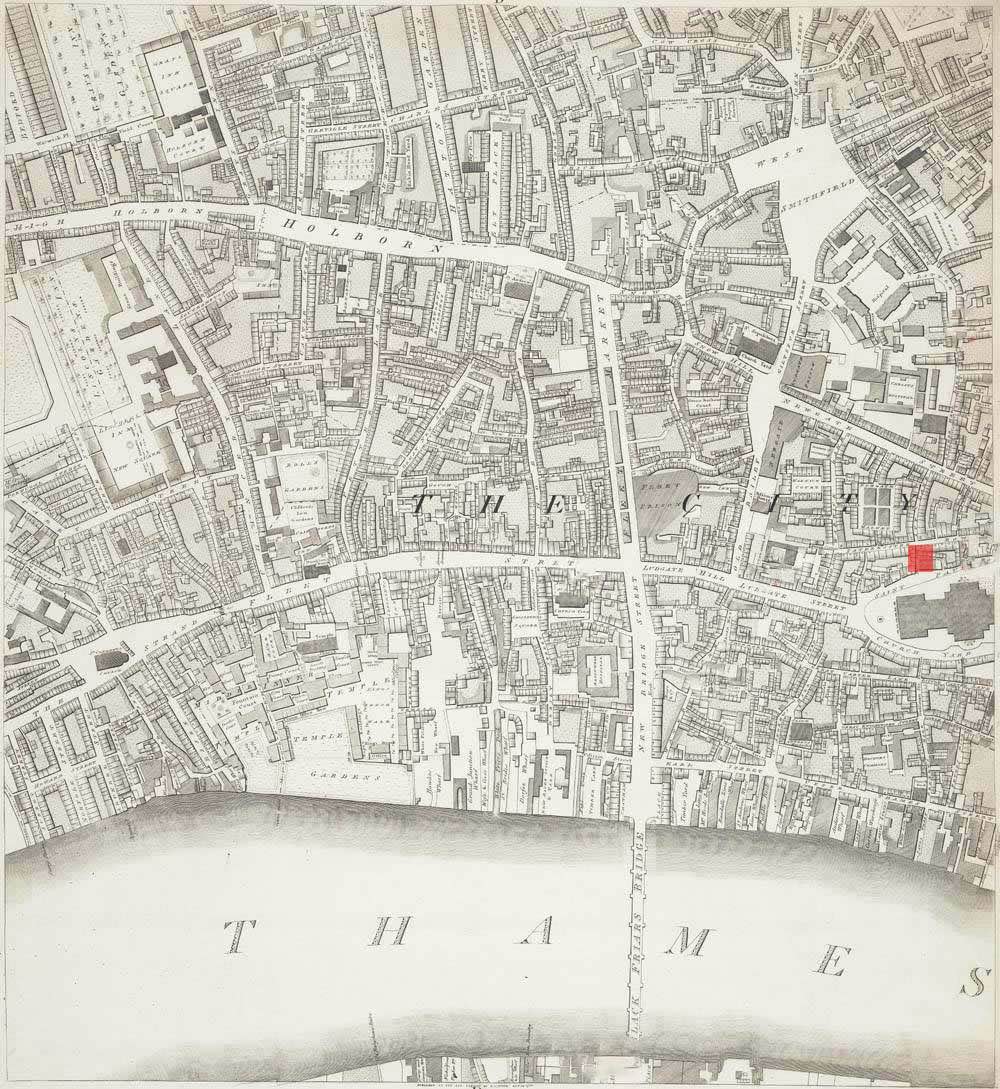
The May 1818 issue of Blackwood’s Edinburgh Magazine is published. The London printing of the journal is by Baldwin, Cradock, and Joy, 47 Paternoster Row.
In a devastating review of poetry by Keats’s earlier mentor and still friend, Leigh Hunt, the anonymous Z
—John Gibson Lockhart—notes that a few of the poems in
Hunt’s Foliage collection refer to Hunt crowning of himself
with laurels with a certain infatuated Bardling, Mister John Keats
(p. 197). The review
is framed as Letter from Z. to Mr Leigh Hunt, King of
Cockneys. Essays and reviews like these often act out one part of the culture wars of
the time; in this case, a Scots journal in Edinburgh looks down its Tory nose at English
Whigs
in London. Politics, class, personality, and poetry are mashed up to deliver the maximum
blow—toss in some innuendo about morality and personal weaknesses, add a large measure
of
condescension with an equal amount of wit and invective, and you have the general
recipe. Some
do it better than others, and Z is pretty good.
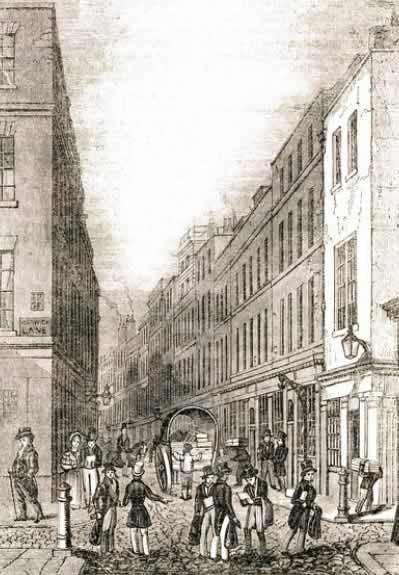
In this case, Z’s review is indeed swamped
with commentary motivated mainly by politics and, it seems, personal ire, with class
differences thrown in: Hunt’s vulgarity and
plebeian origin and education
are trumpeted (p.196), as are his apparently indecent
values. But then there is Hunt’s verse, and in defense of Z, Hunt’s poetry is hardly
strong or
deep stuff; and Hunt’s pretensions are worthy of at least some ridicule. Keats has,
in fact,
come to see Hunt’s limitations as a poet, and he condemns Hunt’s personal delusions
of
grandeur. Keats himself has already noted the affectation
in just the title of Hunt’s
collection, Foliage (25 March).
Keats is forever associated with this Hunt-headed Cockney School of Poetry,
and, at
least for the moment, nominated as Hunt’s
unfortunate prototype. It is this charge, and Hunt’s style of affected, sociable poetry
that
Keats will, self-consciously, have to write himself away from—with or without Z’s
charges.
Given that Endymion is published this month (19 May, likely), Keats believes that it, too, will be attacked: he has already signaled affiliation with Hunt (he dedicates his first volume, the 1817 Poems, to Hunt); Hunt has signaled connection with Keats; and Keats has, somewhat embarrassingly signalled the inadequacies of Endymion in his preface to the poem.
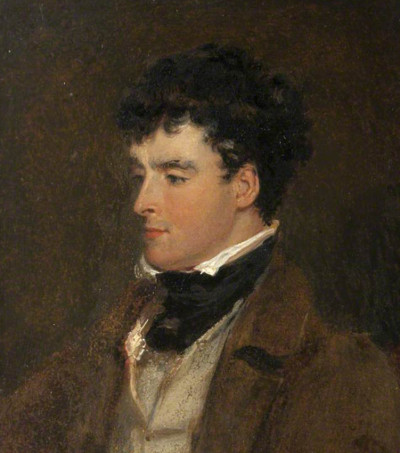
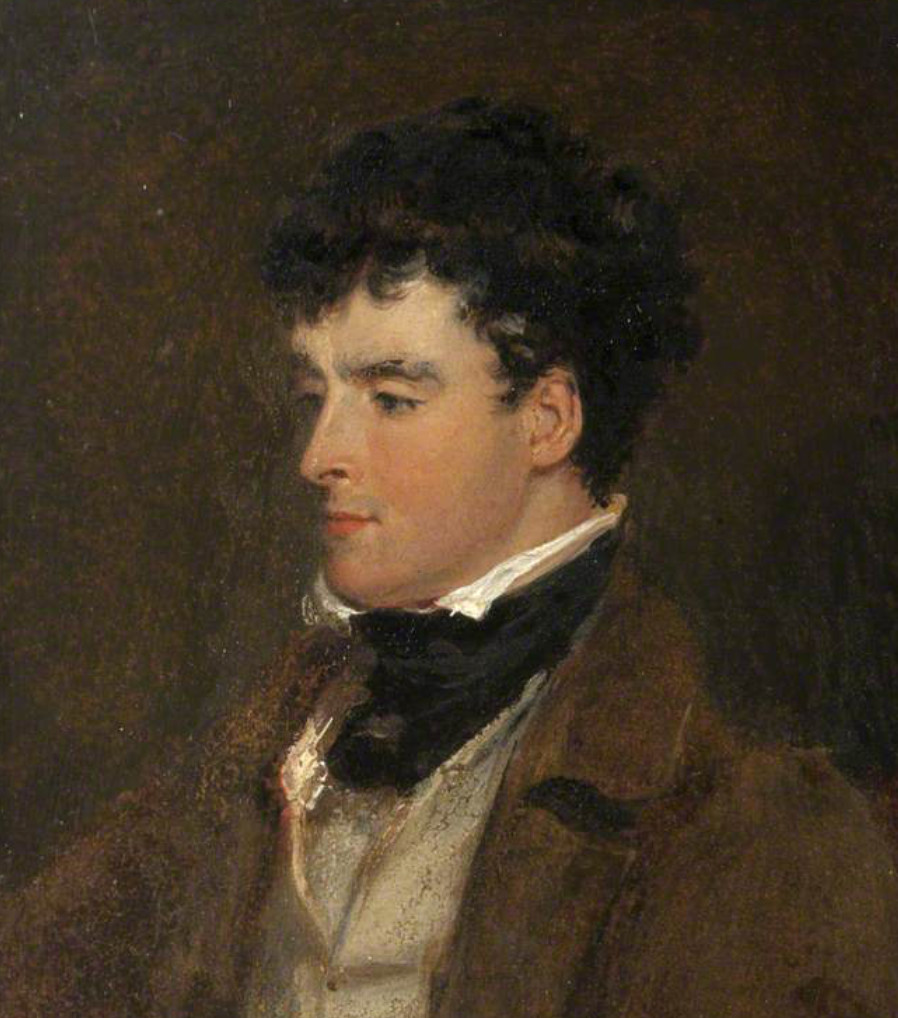
Z—John Gibson Lockhart, 1824, by G. S. Newton, Abbotsford House
And so, in the August 1818 issue of Blackwood’s, in the
fourth of the eight essays on the Cockney School, Keats is indeed administered a large
dose of
abuse by Z. Keats will be charged with having
caught the illness of Metromanie,
the mania for writing poetry. The simple
cure: quit writing poetry. The advice: the wonderfully insincere and condescending
plea for
Keats to return to the medical profession before it is too late. How does Z know this
about
Keats? Lockhart by chance heard about Keats’s medical training and qualifications
via a mutual
friend, Benjamin Bailey; Bailey had no idea it
would become part of the rhetoric in the personal attack on Keats. Bailey’s intention
was, in
fact, to protect Keats. But all is fair in love and reviewing.
Well, these Tory reviewers are on the case of that Cockney bunch, and, as mentioned, Hunt in particular is the premier target; and these rhetorical attacks, when added up, have no problem comparing members of the so-called Cockney school to vermin, pestilence, or disgusting animals, and at moments, making these comparisons in scatological terms—not to mention all that personal and class disparagement.
Blackwood’s Edinburgh Magazine does not, will not, leave
Keats alone, living or dead. He’s an easy target, and just another way to get at Hunt
and his
Cockney circle—politics and poetics collapse into one in the culture wars of the era.
Between
1818 and 1824, Blackwood’s takes about thirty verbal
shots
at Keats—some direct, some coy, some allusional, but all disparaging. As for
Keats, while he understands that much of animus is purely partisan, at some moments
it does
not bother him, and at other moments it rankles him.

